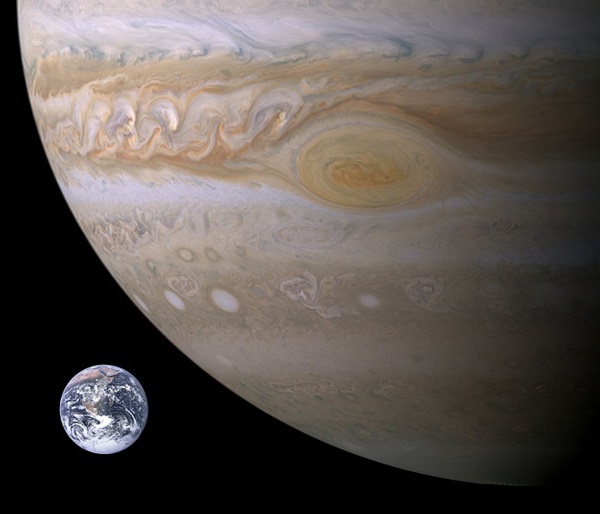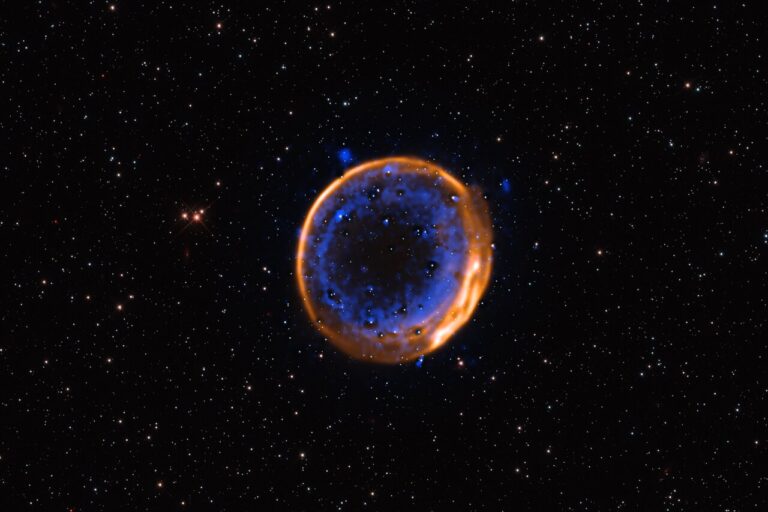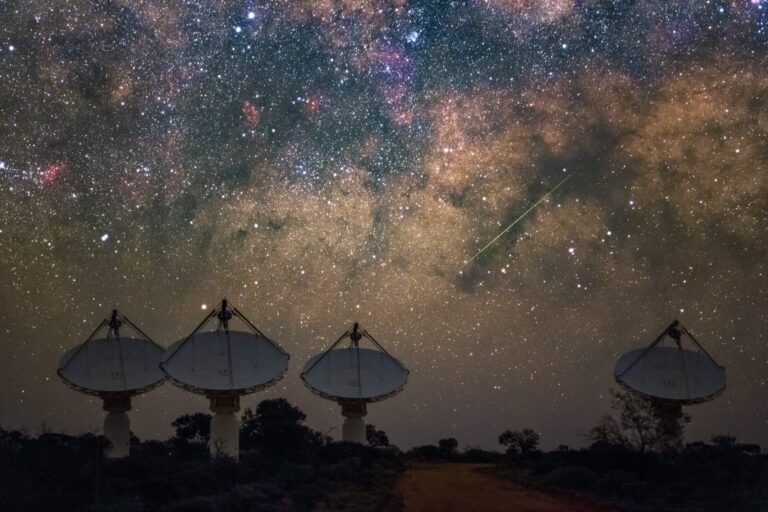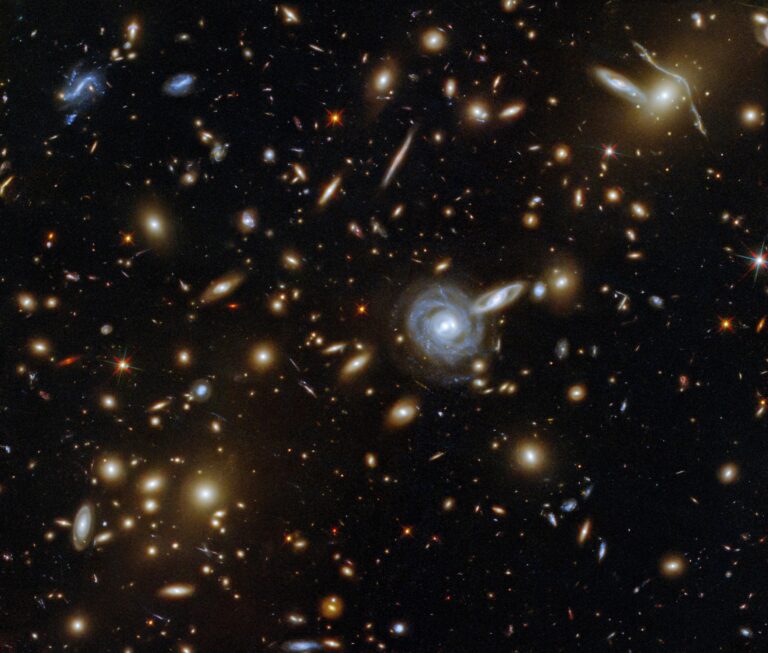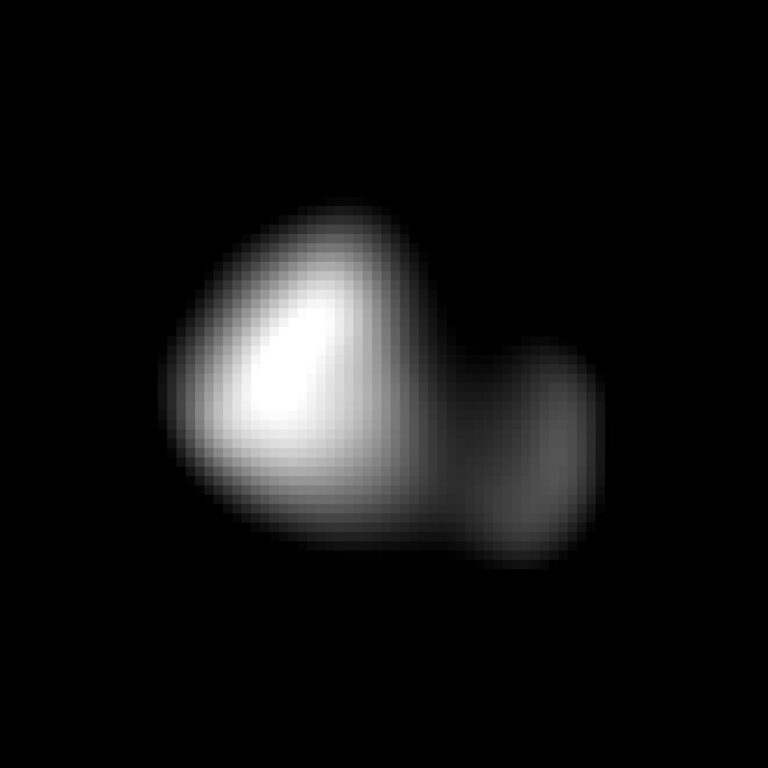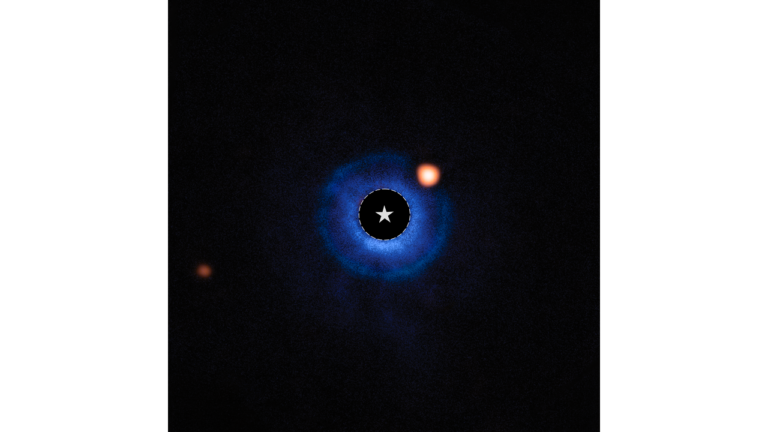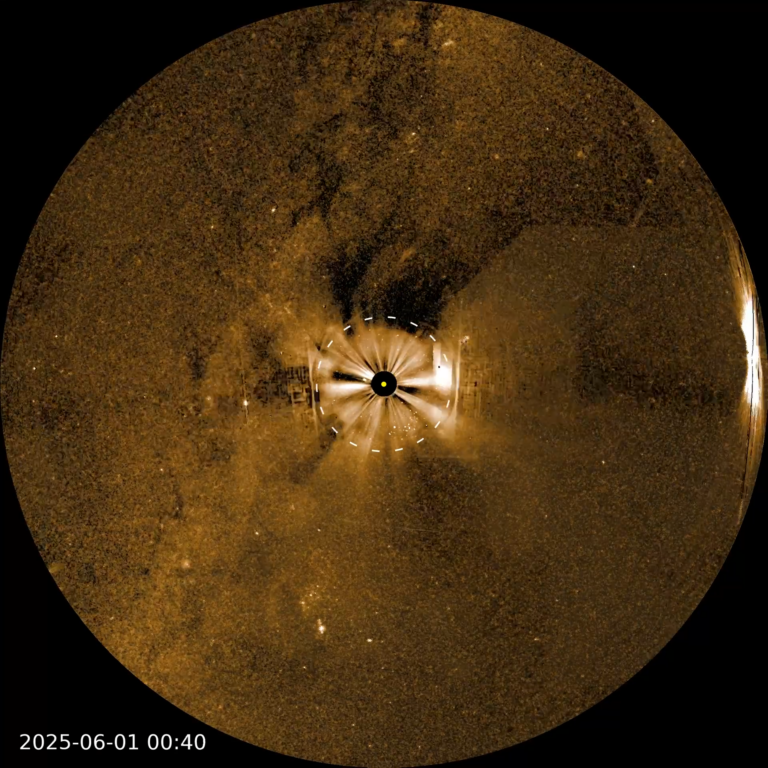Q: We see estimates of the tonnage of meteorites that land on Earth every year and articles about solar wind ablation of atmospheric molecules. Has it ever been decided whether Earth is, overall, gaining or losing mass?
Barry McElmurry
Vista, California
A: To answer this, we have to compare loss of atmosphere to gain by meteoritic material. Atmospheric gas escapes from a planet in two main ways. First, the motion of the molecules themselves at a certain temperature may cause their speed to exceed the planet’s escape velocity. The higher the mass of the molecule is, however, the lower its speed. So, hydrogen, the lightest element, is more likely to escape than helium, etc.
Two other factors weigh in here as well: the mass of the planet (more gravity) and its distance from the Sun (a warmer, more energetic environment). When we compare Earth to Jupiter, for example, our planet is closer to the Sun and much less massive. That’s why Jupiter has retained much of its hydrogen while Earth has not.
The second major way a planet can lose atmosphere is through interaction with the solar wind. In this case, the energy of that stream of charged particles can increase the velocity of gas molecules to more than a planet’s escape velocity.
In Earth’s case, however, we have a natural defense mechanism that guards our atmosphere from the solar wind: a strong magnetic field. It deflects nearly all particles in the solar wind as far as 40,000 miles (65,000 kilometers) from Earth.
Current estimates place the loss of hydrogen and helium at 6.6 pounds (3 kilograms) per second. That works out to just a tad more than 100,000 tons (90,700 metric tons) per year. When you compare that to the estimated mass of meteoric material that falls to Earth each year (approximately 50,000 tons), indeed, our planet does seem to be on a weight-loss program.
Don’t worry, though. If that diet remained constant over a billion years, our planet would have lost only eight-billionths of its total mass.
Senior Editor

